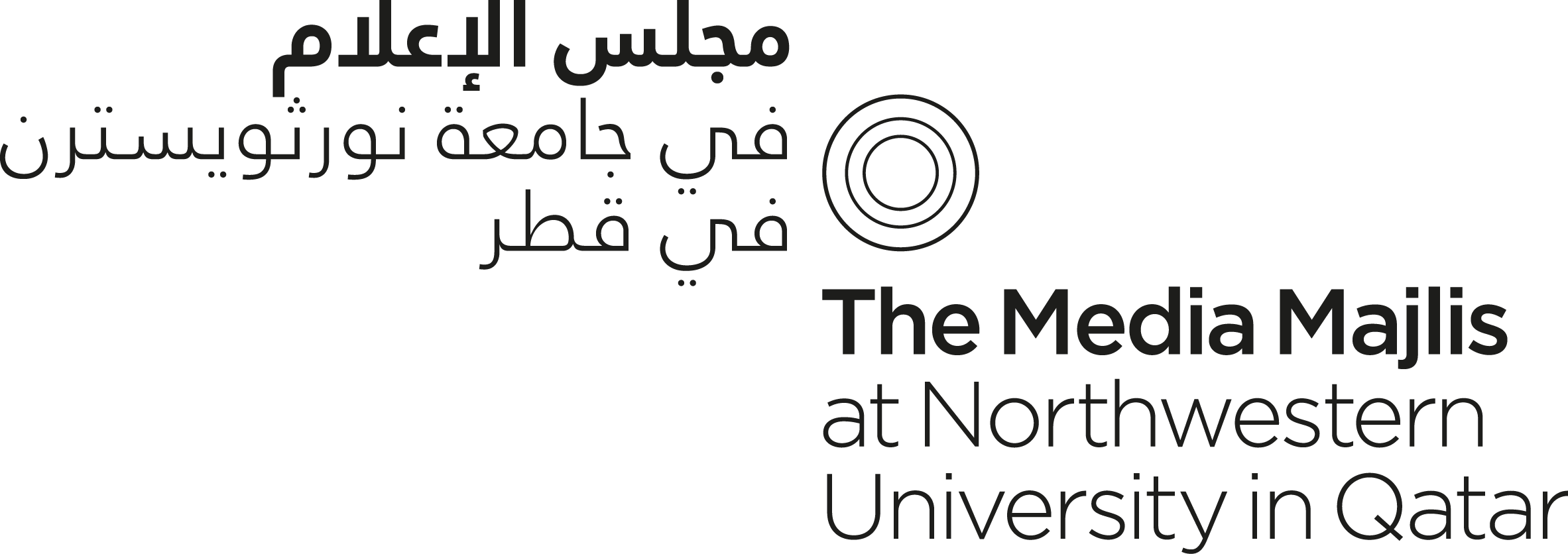
The popularity and global spread of musalsalat means they dominate the television landscape and industry every Ramadan. The 20th century saw a rise in the regional to global influence of serial television dramas in the Arab world with Kuwait and Syria the pioneers of Arab drama television airing for 30 consecutive days. The emergence of satellite providers, streaming services, and online series has changed the industry, so how has this changed what we get to watch each Ramadan, and what does this mean for the future for program creators, advertisers and viewers?
Join our discussion with experts from the industry to look at the current and future trends and business of musalsalat.
See ‘Program credits’ below for list of speakers and their bios.
-
Venue accessibility
-
Simultaneous translation
Simultaneous translation (Arabic/English) is provided for all programs.
-
Wheelchair accessibility
The Projection Theatre is fully wheelchair accessible and features multiple wheelchair spaces with unobstructed views of the stage and screen.
-
Sign Language interpretation
Sign Language interpretation (ASL and ArSL) may be requested for talks, discussions, lectures and tours. Please contact the museum well in advance of the program to discuss this service. You are welcome to bring an interpreter with you—please let us know ahead of time and we will ensure that appropriate seating is reserved. A program ticket does not need to be purchased for an interpreter providing prior notification of their attendance at a specific program is provided to the museum.
-
Wifi
Free wifi access is available in the building. On your mobile device, with wifi switched on, select Guest-NUQ-Majlis from the available services and accept the terms of service to connect.
-
-
Program credits
Shahd Shammari
Shahd Alshammari is a Kuwaiti-Palestinian professor of English literature at the Gulf University for Science and Technology in Kuwait, and an author. Her recent works include Notes on the Flesh (Faraxa Press, 2017) and Head Above Water (Neem Tree Press, 2022). A graduate of the University of Kent, UK, her research areas include disability studies, illness narratives, and narrative nonfiction. She is the editor of Heroes and Villains (2019), featured in the exhibition The World is Watching Musalsalat, and contributed an essay on the portrayal of women in Kuwaiti musalsalat for the exhibition’s accompanying publication.
Firat Oruc
Firat Oruc is an associate professor at Georgetown University School of Foreign Service in Qatar, where he directs the Media and Politics certificate program. He is the editor of Sites of Pluralism: Community Politics in the Middle East (Oxford University Press, 2019) and “Indian Ocean Literary Circularities,” a special issue of Comparative Literature (2022). His current book project explores the cultural and political history of film in the Arabian Peninsula.
